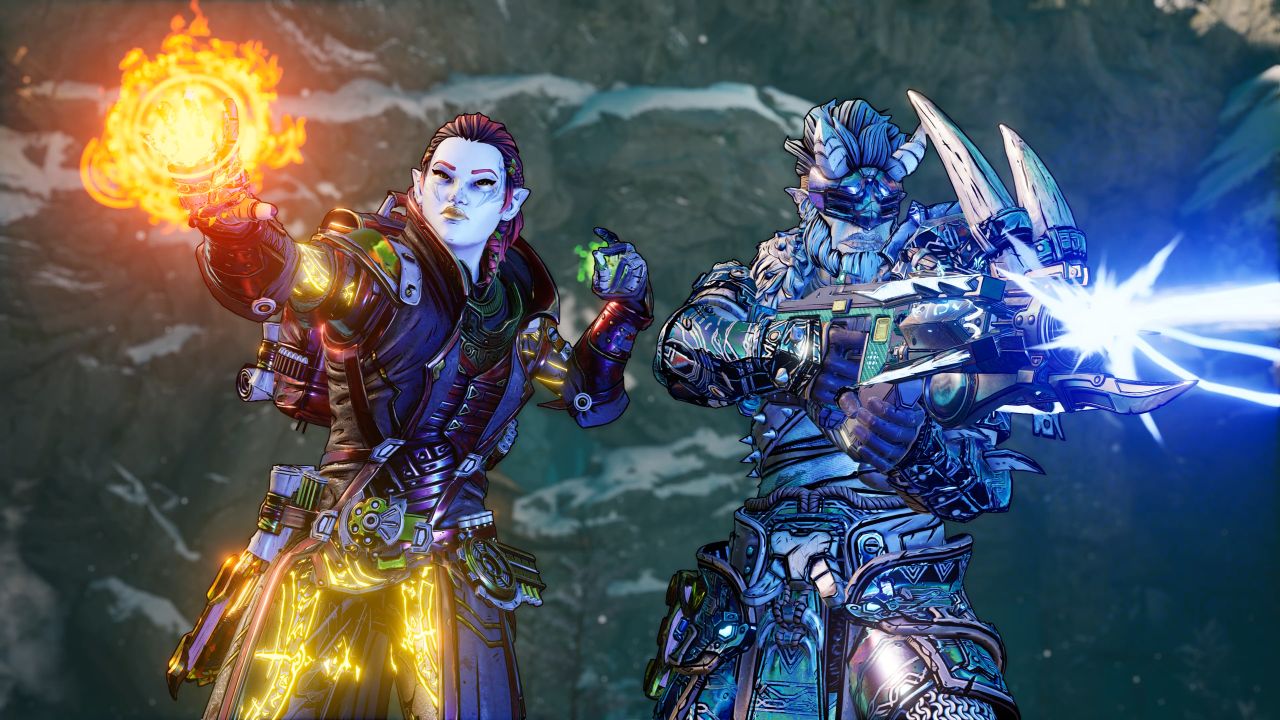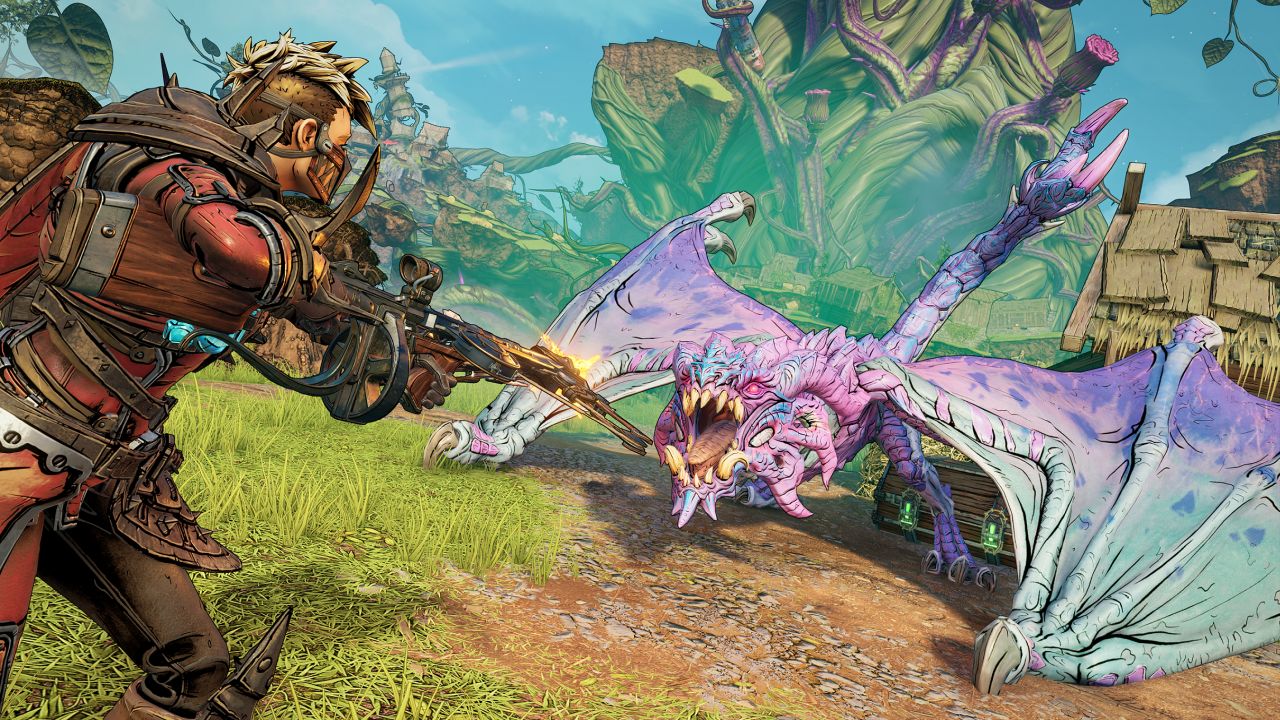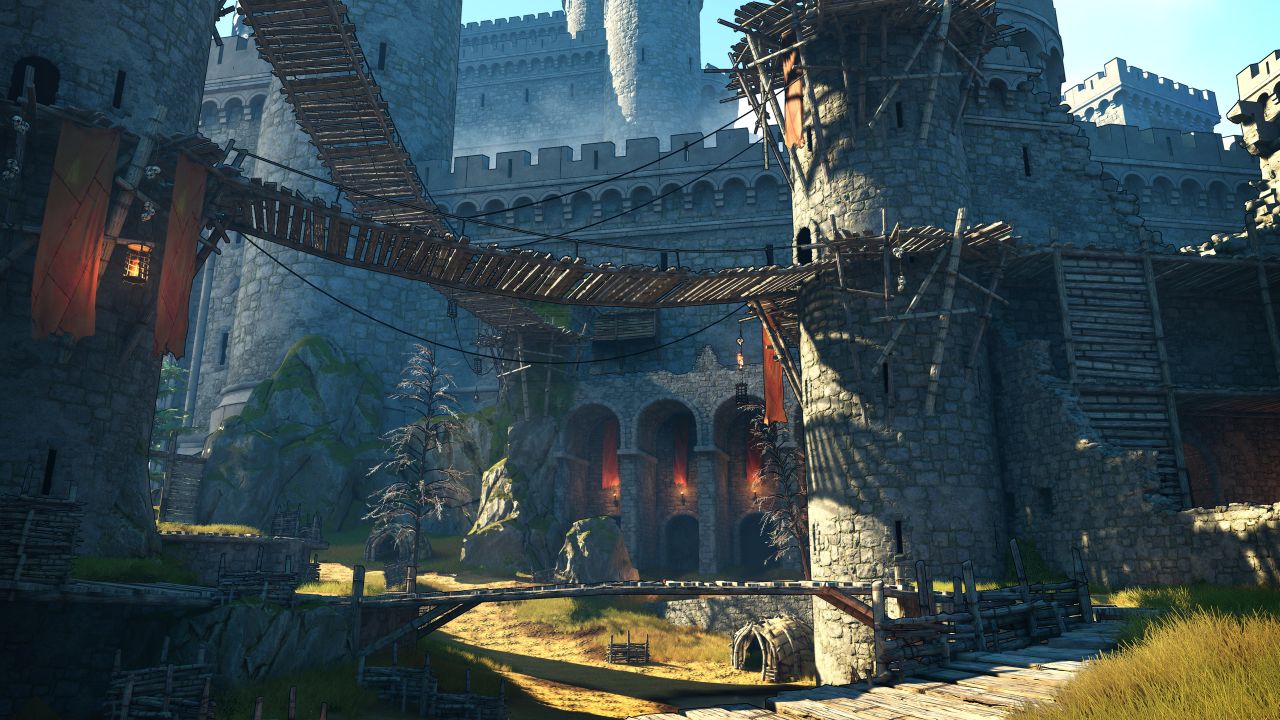Tiny Tina's Wonderlands Review
Guns and magic
Before Destiny, Warframe, and many others over the past decade, there was Borderlands. Making its debut in 2009, the series is often credited with bringing the "looter shooter genre" to the forefront. Combining fun FPS action, whacky characters, and tons of loot to collect and sort through, this series has gathered a large fan following, even as other games of similar nature have adopted the formula. A successful sequel followed in 2012, and there was also a spinoff named Borderlands: The Pre-Sequel, and while it had all the elements of the franchise, it felt a bit repetitive and unnecessary. It wasn't until 2019 that the franchise returned with Borderlands 3, and three years later we're faced with a similar situation. Tiny Tina's Wonderlands is a spinoff entry that changes up the setting, but feels quite familiar.

Wonderlands transports players into a meta experience where you’re playing a tabletop RPG, with Tina being the dungeon master. As the newbie, you join other players Valentine and Frette, and defeat an evil villain named Dragon Lord. However, he's not truly defeated, and instead begins to converse with you directly, as if bypassing Tina's control of the game. Tina begins a new game, where you are now the Fatemaker, as you set out to cleanse the lands of evil with the guidance of the queen unicorn named Butt Stallion. It's the typical whacky Borderlands humor, just in a different setting based on medieval fantasy lore. The voice acting across the main cast is solid, with recognizable talents of Ashly Burch, Andy Samberg, Will Arnett and Wanda Sykes, while the minor characters stick to their usual whacky delivery.
As you go through the adventure, the unique meta setting allows for constant conversations with Tina and the other two players, as things change – Tina may get annoyed when others call out her nonsensical quests or boss fights, and things get changed instantly. You could need to help defeat some blue smurfs, take a small pet land shark out for a walk to do its "business", and listen to everyone talk in medieval English slang. There are a few memorable and fun story moments, and the campaign is largely enjoyable throughout. If you never enjoyed Borderlands humor though, or its characters such as Tina (who has admittedly toned down her persona for this entry), Wonderlands won't change your mind.
The campaign also does run into some issues with pacing. As you loot and shoot your way through the fantasy lands, there are occasional big jumps in the level requirements for the next main story quest. This means you have to go elsewhere and explore. And to be fair – the game has large side levels and a multitude of quests to tackle. But it would have been better to integrate them into the main narrative, which loses its sense of urgency and adventure as you go off and do something else for hours. The game features a combination of typical Borderlands levels – some small and linear, others large and expansive with a number of side quests. It's not an overly long experience, which may feel short given its full asking price. Post-campaign, you can strive to reach level 40 cap which unlocks even more masteries; then venture into the Chaos Chamber, where you can fight in difficult arenas for better loot. Another new aspect is the Overworld, a board game-type area where your character runs around from an isometric third-person perspective, as you do some exploring, unlock new paths and take on quests. The quests are basic, just sending you into an arena where you have to defeat a few waves of enemies. It's a minor distraction to the traditional Borderlands experience, but it fits well with the setting.

Despite the new setting, Wonderlands plays and feels exactly like Borderlands, for better or worse. At the outset, you customize your character and pick a starting class. There are six classes, focused around the magical setting – you can be an archer, a mage of sorts, a hammer-wielding or sword-slashing warrior, or have a pet companion mushroom. Picking a class defines your two special abilities and skill tree, though later in the game as you level, you can unlock a second class and have the perk trees from both. Skill trees have the usual assortment of passive buffs to help your damage output or survivability. The classes lean towards a specific style of play, and although you have a dedicated melee weapon slot now (melee action feels rather shallow), most of the action will still come from using guns.
The guns are varied and the first-person action feels great as you mow down enemies with a variety of ammo types and firing modes. Pistols and rifles are probably the most fun to use in this entry, while sniper rifles and grenade launchers seem underpowered. Shotguns feel entirely useless and awkward to use this time out. In addition to the typical shield inventory slot, you've also now got rings, amulets, and a magic spell to worry about. However, these changes are just alternative versions of the passive buffs found in mainline Borderlands games. You can also get enchanted weapons, but again, it's just a spin on having more passive perks; spell casting is just a grenade replacement. The shooting is still good, but the moment-to-moment gameplay is far too familiar – it would have been nice for this spinoff to have just a little more ambition and risk to change things up.
Regardless of your preferred weapon type, there will be a ton of options, as you find new guns in chests, at the vending machines, and bursting like a fountain from defeated foes. It's the Borderlands tradition, but it seems like Wonderlands has too much loot, and too little of it is useful. As you get deeper into the game, you are constantly showered with items, but your inventory fills quickly and most of it is worse than what you’re already carrying. It's a problem that didn't exist to this level of severity in previous games, so some balancing seems to be needed. Selling everything brings you some cash, which remains the only currency in the game.
But having to deal with so much loot, and new item types, becomes a real headache due to the poor UI. Sorting your inventory always feels wonky and you’re constantly afraid to click on the wrong thing – you shouldn’t be able to sell your equipped weapons at the vendor, yet they show in the list and mistakes can happen. The inventory screens are just poorly designed and not very responsive, and that's just one example of the Wonderlands technical mishaps. The game is overall a bit on the rough side and is probably the least polished at launch in the series. Some bugs are minor and fix themselves, like your quest log being empty, or UI showing that your companion is dead when it is not. You can still only track one quest at a time, and so have to manually scroll through and see what other quests are nearby on the level you are on. But perhaps the worst issues come with multiplayer connectivity.

Wonderlands has some serious connectivity issues during launch week, making it tough or often impossible to connect and stay connected to others. Worse yet, constantly losing your connection to the servers introduces lag spikes into your single player adventures too. For a franchise that’s been built around cooperative multiplayer mayhem, and being the fifth main entry, it's difficult to excuse these technical problems. When you do manage to get connected, playing with up to 3 others is fun as usual – again, it's typical Borderlands, and there are no risks or changes being made here to take advantage of the new setting. There is cross-play available between consoles and PC, which is nice. Though again, a few technical and quest bugs were observed when playing with others.
Probably the best aspect of Wonderlands is its well-realized board game setting, which trades in the typical futuristic, desert settings and whacky killers for the pseudo fantasy forests, swamps, and medieval castles. Everything has the Borderlands spin on it, from characters to the levels, but it's well made and fun to explore. You'll be shooting at skeletons, snakes, smurfs, and other creatures of the land, who have the typical ranged, melee, and magic wielding varieties. It's fun seeing how the game handles the new setting and the fact that Tina and the cast can change things at any time, allowing for some interesting interactions and quests. The audio department is particularly weak however, with the gunfire sounding subdued and a dull soundtrack completely blending into the background.
Tiny Tina's Wonderlands is a Borderlands game with a new look. For some fans, that may be enough, especially if you enjoyed the original Borderlands 2 DLC, Tiny Tina's Assault on Dragon Keep, that this game is based on. The meta-setting allows the story and player interactions with the world to play out in fun and surprising ways. But on the other hand, the gameplay is too familiar – and it could be crudely called a re-skin of Borderlands 3. You're certainly getting your money's worth in terms of content, however this full priced spinoff takes too few risks and doesn’t change the formula in any meaningful way. If you're desperate for more ways to play Borderlands, this will certainly satisfy, but casual fans and newcomers are probably better off waiting for a more evolutionary entry.
 Comments
Comments




















